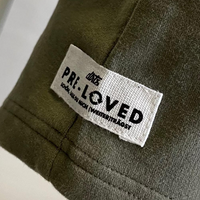Water consumption & CO2
Worldwide, most organic cotton is grown on farms that use rainwater , meaning no freshwater irrigation is used. Due to the careful crop rotation, the soil is healthy, contains more organic matter, and retains water 50% better than conventionally farmed soil. Water consumption in organic cotton cultivation is up to 91% lower than in conventional cotton. Organic cotton cultivation also saves up to 46% of CO₂ emissions compared to conventional cotton.
And since the boss likes to lend a hand himself, it was of course essential to help with the harvest and give the people there a hand.
Here are a few impressions:






Organic cotton
Certified organic cotton is grown in fields without the use of chemical fertilizers, pesticides, or defoliants . Only natural and organic fertilizers such as compost and animal manure are permitted. Organic cotton currently still accounts for only a fraction of total cotton production.
There are various certifications for organically grown cotton. The Global Organic Textile Standard (GOTS) is the most comprehensive certification. This seal is the world's leading standard for the production and processing of textiles made from organically produced natural fibers. The certification defines holistic requirements along the entire production and value chain. That's why we, too, have chosen this certificate.

Water consumption & CO2
Worldwide, most organic cotton is grown on farms that use rainwater, meaning that no fresh water is used for irrigation. The soil is healthy due to careful crop rotation, contains more organic matter and stores water 50% better than conventionally farmed soil. Water consumption in the cultivation of organic cotton is up to 91% lower than for conventional cotton. The cultivation of organic cotton also saves up to 46% of CO₂ compared to conventional cotton.






















